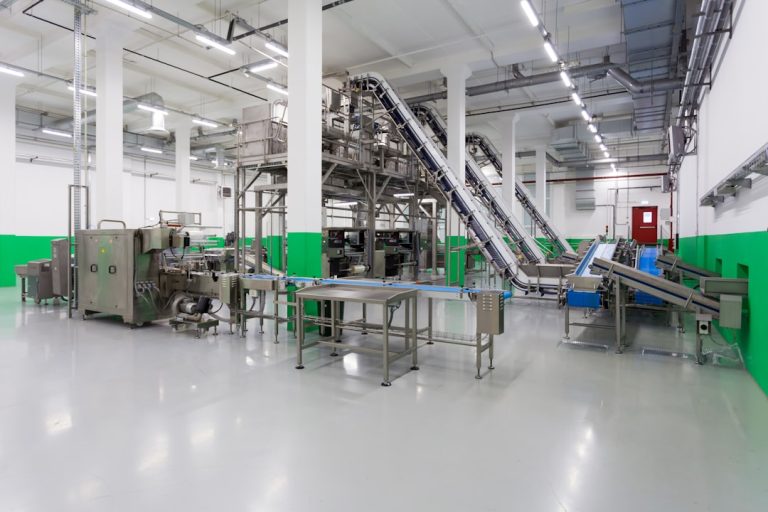
Home health and personal care aides play a crucial role in the healthcare system, particularly for individuals who require assistance due to age, illness, or disability. These professionals provide essential support that enables clients to maintain their independence while receiving the care they need in the comfort of their own homes. Their responsibilities can range from basic personal care, such as bathing and grooming, to more complex health-related tasks, including medication management and monitoring vital signs.
This versatility allows aides to cater to a diverse clientele, ensuring that each individual receives personalized care tailored to their specific needs. In addition to physical assistance, home health and personal care aides often serve as emotional support for their clients. Many individuals who require in-home care may experience feelings of isolation or depression due to their circumstances.
Aides not only help with daily tasks but also engage in meaningful conversations, providing companionship that can significantly enhance the emotional well-being of their clients. This dual role of caregiver and companion underscores the importance of home health aides in fostering a holistic approach to health care, where both physical and emotional needs are addressed.
Key Takeaways
- Home health and personal care aides play a crucial role in providing assistance and support to seniors and individuals with disabilities.
- Supporting independence for seniors and individuals with disabilities is essential for their overall well-being and quality of life.
- Training and certification requirements for home health and personal care aides vary by state and employer, but typically include basic healthcare training and CPR certification.
- Home health and personal care aides assist clients with activities of daily living such as bathing, dressing, meal preparation, and medication reminders.
- The impact of home health and personal care aides on the quality of life for clients is significant, as they provide essential support and companionship for those in need.
The Importance of Supporting Independence for Seniors and Individuals with Disabilities
Supporting independence for seniors and individuals with disabilities is paramount in promoting dignity and self-worth. When individuals are empowered to perform daily activities on their own, it fosters a sense of control over their lives. This autonomy is particularly significant for seniors who may feel a loss of independence as they age or face health challenges.
Home health and personal care aides facilitate this independence by providing the necessary support while encouraging clients to engage in activities they can manage themselves. This balance not only enhances the quality of life but also contributes to better mental health outcomes. Moreover, promoting independence can lead to improved physical health.
Studies have shown that when individuals are encouraged to participate in their own care routines, they are more likely to adhere to prescribed health regimens, such as exercise or dietary restrictions. Aides can motivate clients to take part in light physical activities or assist them in preparing healthy meals, thereby fostering healthier lifestyles. This proactive approach not only benefits the clients but also alleviates some of the burdens on family members who may otherwise feel responsible for their loved ones’ care.
Training and Certification Requirements for Home Health and Personal Care Aides

The training and certification requirements for home health and personal care aides vary significantly across states and agencies, reflecting the diverse needs of the populations they serve. Generally, most states require aides to complete a training program that covers essential topics such as basic caregiving skills, safety protocols, infection control, and communication techniques. These programs often include both classroom instruction and hands-on training, ensuring that aides are well-prepared to handle real-world scenarios they may encounter in clients’ homes.
Certification is another critical aspect of professionalizing the role of home health aides.
Certification programs typically involve passing an exam that assesses knowledge and skills related to personal care and home health services.
Additionally, ongoing education is often encouraged or required to keep aides updated on best practices and new developments in the field. This commitment to continuous learning not only enhances the quality of care provided but also elevates the profession as a whole.
How Home Health and Personal Care Aides Provide Assistance with Activities of Daily Living
| Activity of Daily Living | Assistance Provided |
|---|---|
| Bathing | Assist with getting in and out of the shower or bath, washing, and drying |
| Dressing | Help with selecting appropriate clothing and putting it on |
| Grooming | Assist with hair care, shaving, and applying makeup |
| Toileting | Help with using the toilet, cleaning, and changing adult diapers |
| Transferring | Assist with moving from bed to chair, or from chair to toilet |
| Eating | Help with meal preparation, feeding, and drinking |
Home health and personal care aides are instrumental in assisting clients with activities of daily living (ADLs), which are essential for maintaining personal hygiene, nutrition, mobility, and overall well-being. These activities include bathing, dressing, grooming, toileting, eating, and transferring from one position to another, such as moving from a bed to a chair. Aides are trained to provide this assistance in a manner that respects the dignity and preferences of their clients, ensuring that they feel comfortable and secure during these often intimate tasks.
In addition to ADLs, aides also assist with instrumental activities of daily living (IADLs), which encompass more complex tasks necessary for independent living. These may include meal preparation, medication management, light housekeeping, laundry, shopping for groceries, and transportation to appointments. By helping clients manage these responsibilities, home health aides enable them to live more independently while ensuring that their basic needs are met.
This comprehensive support system is vital for individuals who may struggle with these tasks due to physical limitations or cognitive impairments.
The Impact of Home Health and Personal Care Aides on Quality of Life for Clients
The presence of home health and personal care aides can have a profound impact on the quality of life for clients. By providing essential support with daily activities, aides help individuals maintain their independence and dignity, which is crucial for emotional well-being. Clients often report feeling more secure and less anxious when they know they have reliable assistance available.
This sense of security can lead to increased engagement in social activities and hobbies, further enhancing their overall quality of life. Moreover, the relationship between clients and their aides can significantly influence mental health outcomes. Many clients develop strong bonds with their aides, viewing them not just as caregivers but as friends or family members.
This companionship can alleviate feelings of loneliness and isolation that often accompany aging or disability. The emotional support provided by aides can be just as important as the physical assistance they offer; studies have shown that social interaction is linked to better mental health outcomes among seniors. Thus, home health aides contribute not only to physical care but also to fostering a supportive environment that promotes emotional resilience.
Challenges and Opportunities in the Home Health and Personal Care Aide Industry

The home health and personal care aide industry faces several challenges that impact both workers and clients. One significant issue is the high turnover rate among aides, which can disrupt continuity of care for clients. Factors contributing to this turnover include low wages, lack of benefits, and demanding work conditions.
Many aides work long hours with little recognition or support, leading to burnout and job dissatisfaction. Addressing these challenges is essential for improving workforce stability and ensuring that clients receive consistent care. Despite these challenges, there are numerous opportunities for growth within the industry.
The increasing aging population in the United States has led to a rising demand for home health services, creating job opportunities for aspiring aides.
By embracing these innovations and advocating for better working conditions, the industry can attract new talent while improving the quality of care provided to clients.
The Future of Home Health and Personal Care Aides in the USA
The future of home health and personal care aides in the United States appears promising yet complex. As the population ages—projected to reach 80 million seniors by 2040—the demand for home-based care services will continue to grow exponentially. This demographic shift necessitates a robust workforce capable of meeting diverse needs across various settings.
Policymakers will need to prioritize funding for home health services and create incentives for individuals to enter this vital field. Furthermore, there is an increasing recognition of the importance of mental health in overall well-being. As such, training programs for home health aides may evolve to include more comprehensive education on mental health issues and strategies for providing emotional support.
The integration of technology into caregiving practices will also likely expand; aides may utilize apps or devices that facilitate communication with healthcare providers or track client progress more effectively. These advancements could enhance the quality of care while making the work more manageable for aides.
Resources and Support for Home Health and Personal Care Aides
Numerous resources exist to support home health and personal care aides in their professional development and well-being. Organizations such as the National Association for Home Care & Hospice (NAHC) provide valuable information on best practices, regulatory updates, and advocacy efforts aimed at improving working conditions within the industry. Additionally, many states offer training programs that not only equip aides with essential skills but also connect them with potential employers.
Support networks are also crucial for aides facing challenges in their roles. Peer support groups can provide a platform for sharing experiences, discussing difficulties encountered on the job, and exchanging coping strategies. Online forums and social media groups dedicated to home health aides allow professionals from across the country to connect and share resources.
By fostering a sense of community among aides, these networks can help combat feelings of isolation while promoting professional growth through shared knowledge and experiences.
If you are interested in learning more about occupations in the USA, you should check out the article “Hello World” on careersintheusa.com. This website provides valuable information on various career paths, including Home Health and Personal Care Aides. It is a great resource for those looking to explore different job opportunities and industries in the United States.
FAQs
What is the role of a home health and personal care aide?
Home health and personal care aides provide assistance to individuals who are unable to care for themselves. They help with activities such as bathing, dressing, and meal preparation, and may also provide companionship and emotional support.
What are the educational requirements for becoming a home health and personal care aide?
In the USA, home health and personal care aides typically do not require formal education, although some employers may prefer candidates with a high school diploma or equivalent. On-the-job training is usually provided.
What is the job outlook for home health and personal care aides in the USA?
According to the U.S. Bureau of Labor Statistics, employment of home health and personal care aides is projected to grow much faster than the average for all occupations. This growth is driven by an aging population and the increasing demand for in-home care services.
What are the working conditions for home health and personal care aides?
Home health and personal care aides often work in clients’ homes or in residential care facilities. They may work full-time or part-time, and their schedules can include evenings, weekends, and holidays. The work can be physically and emotionally demanding.
What are the key skills and qualities needed to be a successful home health and personal care aide?
Home health and personal care aides should have strong interpersonal skills, patience, and compassion. They should also be physically fit and able to perform tasks such as lifting and assisting with mobility. Additionally, they need to be reliable and trustworthy.






